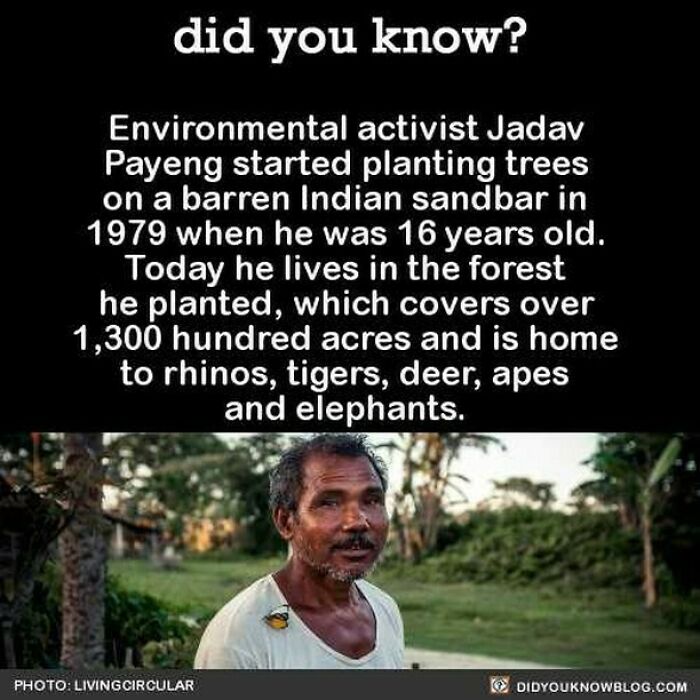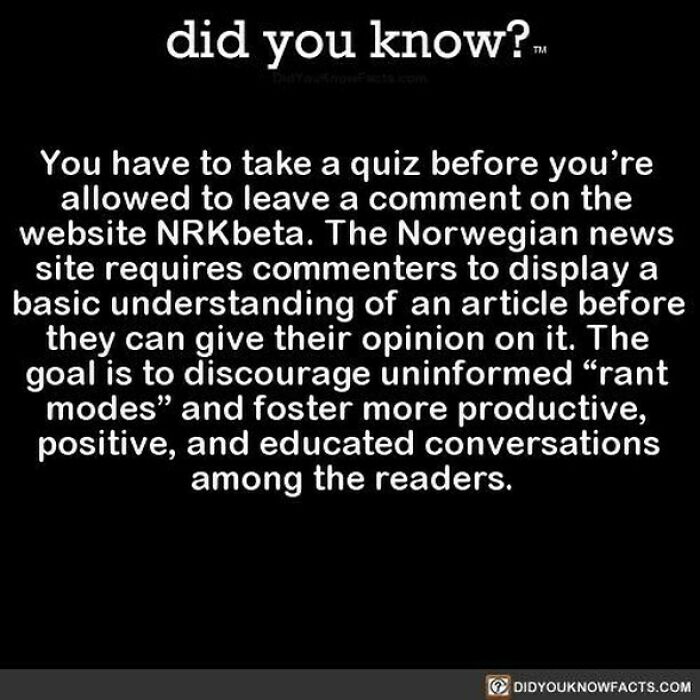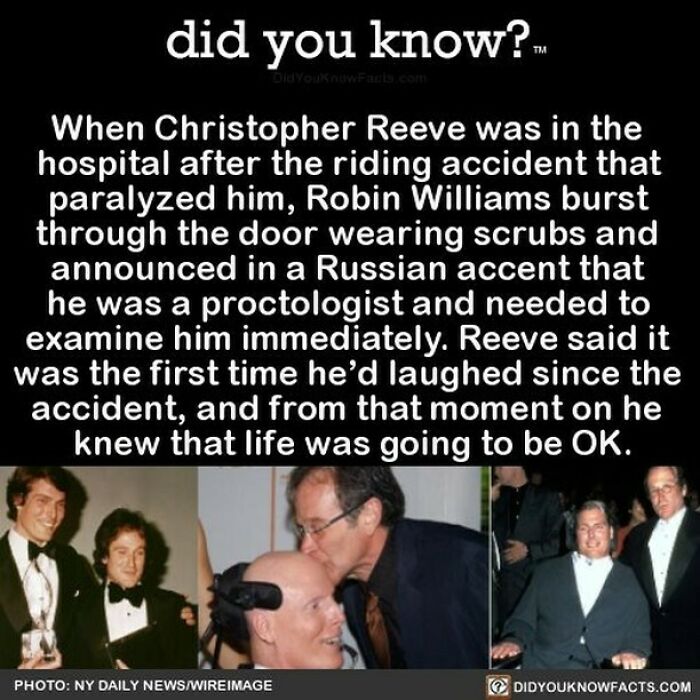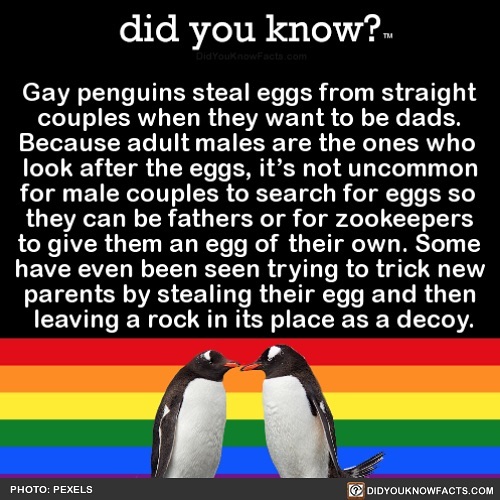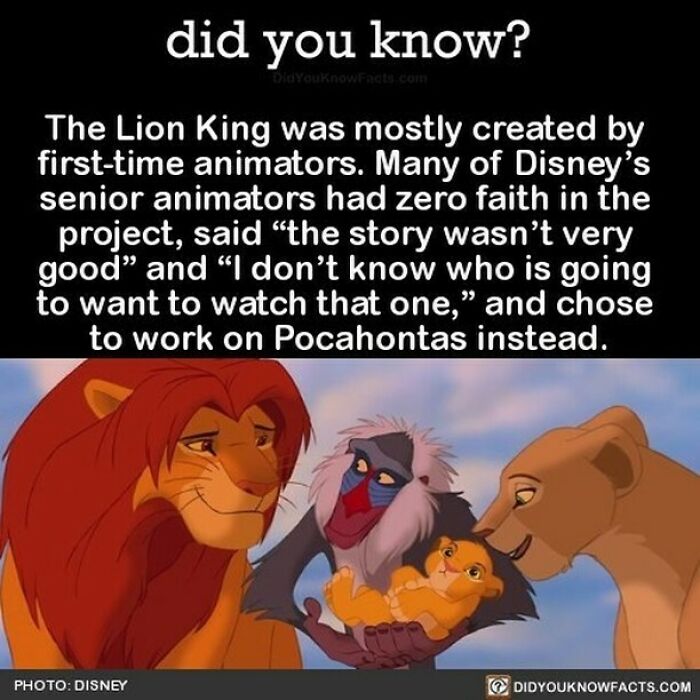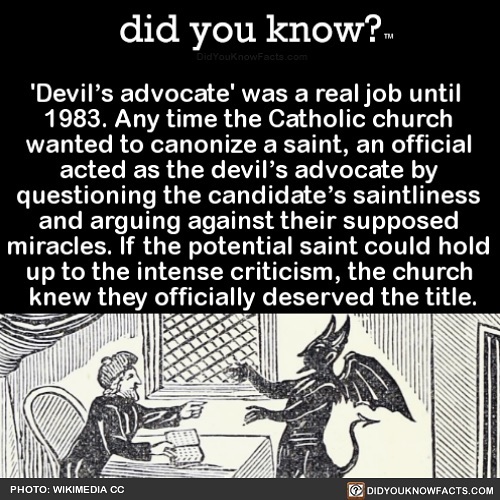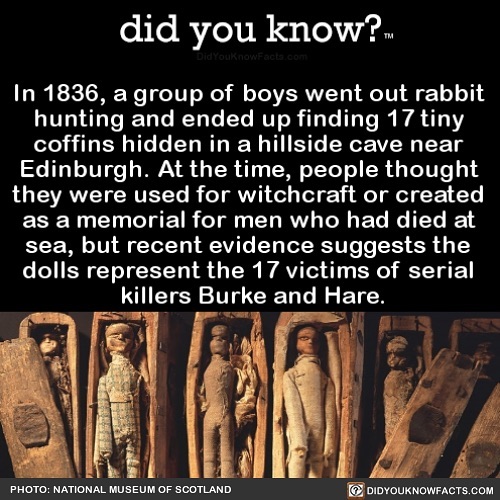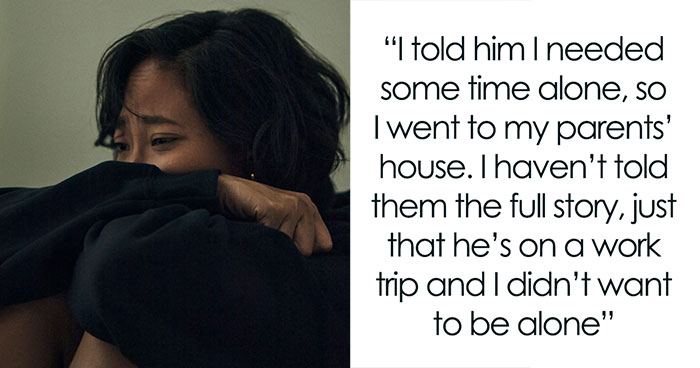
465Kviews
This Instagram Account Shares 50 Interesting And Fact-Checked Things You Might Not Know About The World
If it’s not educational or amusing, it likely won’t hold our attention. Many of us still have an inner child whose eyes gleam brightly every time it spots something fun or interesting, whether it’s online or in real life. We’re driven by curiosity and there’s a deep inner desire to learn more about the world. Though it can get dimmer as we age, it never truly goes away. And one way to reignite our passion for learning is by snacking on cool, bite-sized facts about science, psychology, tech, and history.
That’s where the massively successful ‘Did You Know?’ project comes in. Run by a group of ‘knowledge crusaders,’ it shares fun, interesting, and unusual facts about the world that you may not have ever heard of. And today we’re featuring some of their best posts, as shared on their Instagram page, to help spread their mission of enriching people’s lives through education.
Scroll down, upvote your fave facts, and let us know in the comments which of these you found the most surprising, dear Pandas. Oh, and if you feel that you’ve fallen in love with the ‘Did You Know’ project, be sure to follow them on social media for their freshest updates.
We reached out to the 'Did You Know?' team and a representative was kind enough to answer Bored Panda's questions. We also got in touch with Steven Wooding, a member of the Institute of Physics in the UK, part of the Omni Calculator team, and the creator of the Weird Units Converter, to have a chat about how scientists should approach things when there are competing interpretations, embracing mistakes, and staying passionate about your chosen subject. Read on for what they both told Bored Panda.
More info: Instagram | Facebook | Twitter | DidYouKnowFacts.com
This post may include affiliate links.
A member of the 'Did You Know?' team told Bored Panda that they started the project over a decade ago, all the way back in 2011. The goal was to make it fun and interesting to learn new things that people might not know about the world around them, no matter if we're talking about the past, present, or the future.
"Specifically, we know if we can take something complex or long but filter it down to something snackable we have accomplished our goal," they said.
"It might sound cheesy, but we want to make learning fun," the 'Did You Know?' team representative told Bored Panda that, above everything, they put an emphasis on this key thing.
THIS ! So much more important to acknowledge the past than canceling it.
They also revealed a bit about their approach to the research behind each fact.
"We focus heavily on the research and fact-checking when creating our content and hold high standards to finding and verifying sources," they explained. "No one is perfect, but we have reviews by writers, editors, and publishers before we publish to ensure we are doing our best to not misinform our readers."
Meanwhile, Steven, from the Omni Calculator project, shared his thoughts about how scientists 'should' behave if they come across two or more competing interpretations of the truth.
"Probably the main factor when deciding on which theory is closer to the truth is the amount and quality of the evidence for each interpretation," he told us, adding that scientists have to put in the work and immerse themselves in their field. Staying up to date with the newest information and findings is critical.
"You have to be prepared to keep up with the developments in a contested field of science, as new evidence may favor one or the other over time. And therefore, you need to keep an open mind in these areas."
We wanted to get Steven's opinion on how to embrace failure, something that most people probably don't enjoy. Mistakes are great opportunities to learn, but many end up feeling embarrassed and miss the lesson. Reframing failure as trial and error might help some people shy away from failure less.
"One very powerful way of learning a new skill is by trial and error. Take learning to ride a bike for example. We fall many times and make numerous mistakes before we finally get it and we can ride error-free. So the next time you make a mistake, reframe it as part of the trial and error learning process and normal part of it," the member of the Institute of Physics in the UK told Bored Panda.
As for keeping our passion for our beloved subjects burning bright over the years and ups and downs, Steven suggests taking a look at what's fresh and new in your chosen subject. It's bound to rekindle any curiosity or passion you feel you may have lost.
"One good way is to keep up with the latest news happening in your subject area. You will be exposed to all the new developments and realize that the subject is progressing past what you know and learn new things," he said.
The team behind the ‘Did You Know?’ project states that their main purpose is to “enrich the lives of others by providing fun and interesting ways to learn about the world —past, present, and future—what lies within it, and what’s been discovered beyond it.”
According to them, they provide new ways of “observing and understanding life” in the massive stream of information that many of us have access to at our fingertips.
Above all, the ‘Did You Know?’ team strives for quality, reliability, and excellence. They do a ton of research to make sure that what they’re sharing is as close to the truth as it can be.
“We know you want more than just random, meaningless facts, so we work very hard to live up to your expectations. Whether you’re interested in giant tarantulas who have tiny-froggy pets, lifelong couples who die holding hands, everyday people striving for social justice, the fact that magenta doesn’t exist, or the reason why your diamond engagement ring is the result of a decades-old marketing ploy and holds no actual monetary value, ‘did you know?’ has something for everyone,” the team writes that they try to provide something interesting for everyone, no matter who they are.
No, really, they’re aiming to make everyone happy: “the knowledge junkies, the trivia addicts, the know-it-alls, the need-to-know-mores, the don’t-know-enoughs, the young, the old, the incorrigible, the bored, the eager, the downtrodden, the underdogs, the lovers, the dreamers, and you.” It just goes to show that they really do believe that everyone’s a fan of something. No matter how jaded or cynical.
They also aim to bust myths and slay rumors, simplify science and remember forgotten history, showcase ordinary folks doing extraordinary things. And they’re not afraid of owning up to their mistakes (because nobody is perfect and we all make ‘em from time to time).
“We are against Internet rumors, recycled myths, and the spreading of fake news, therefore we cite credible sources for all our facts and credit the talented artists, photographers, and writers whose content and images we use to help further illustrate our educational information,” the ‘Did You Know?’ team explains that they invite opinions on comments on the facts they share.
The ‘Did You Know?’ team has nearly 5 million followers over on Facebook, and another 647k fans on Instagram. Our guess is that the great mix of information and entertainment works wonders to draw in the crowds and turns people into loyal followers.
This is so odd. Why pay so much for a weird and dirty pair of clothing??
Media expert Mike Sington previously explained to Bored Panda that it’s vital to find reliable sources to rely on and to be careful what you repost on social media.
"Red flags to watch out for that a claim may be fake: it's outlandish, it's too good to be true, you haven't seen the claim anywhere else, you've never heard the source, the source isn't reputable, you can't find two other sources making the same claim, your gut tells you, 'this can't be true,'" he shared with us some of the signs that a fact or claim might not be true.
Israel died so young. His funeral is shown at the end of the music video with thousands of Hawaiians showing up to show their last respect. Such a shame to lose such talent so soon.
"The rise of social media has decreased the reliability of information because misinformation can spread so quickly before it can be corrected," Mike pointed out that the speed of sharing information has also made the spread of fake news that much quicker.
One quick way to check the reliability of a fact or a course is to start off with a simple Google search. "Do this and think before reposting or you may be contributing to the problem. Amplification doesn’t make a claim true or accurate," he said that just because something is repeated a lot doesn’t make it true.
The Strauss family owned—-started—-Macys Department Store. These were rich people sacrificing themselves so younger people could live. They were also an old couple, long married and still very much in love, who wanted to die together, even though Mrs Strauss could’ve rotten a place on a lifeboat. She just couldn’t face the idea of living without him. That’s true love, people.
According to Mike, some of the most trustworthy sources out there are the Associated Press, Reuters, and The New York Times. "They employ fact-checkers and editors that ensure the information they post is correct. They’re basically doing the research and homework for you. There are literally too many online sources to list that can’t be trusted and should be avoided. Anyone can basically post anything they want… proceed with caution," he told Bored Panda.
"Our attention spans have been reduced to mere seconds at a time because that’s the way information and entertainment is fed to us now. People get tiny bite-sized bits of news by scrolling a Twitter feed, they entertain themselves by scrolling quickly through Instagram and TikTok. It’s creating a habit that doesn’t have to be.”
He continued: "The good news is there’s plenty of long-form entertainment and news available, you just have to seek it out. I believe the benefit is worth it. I’ve discovered it improves your ability to focus, it’s more calming, you retain more information, and it gives you a more balanced and nuanced view of the world."
Meanwhile, Joseph M. Pierre, a professor of psychiatry at the David Geffen School of Medicine at UCLA, said that countering misinformation is “a huge challenge” and isn’t as effective as we’d like it to be because it only presents accurate information as an alternative to false beliefs.
“In my opinion, understanding conspiracy theories and other false beliefs is best understood as a byproduct of mistrust and misinformation. If people don’t trust authoritative sources of information, they aren’t going to replace their false beliefs with facts and we’re not going to be able to agree on what facts are. That’s where we often are these days,” the professor told Bored Panda.
In his view, ‘inoculation strategies’ can help beat misinformation to the punch. However, the sad fact is that, online, misinformation usually finds its way to people before accurate info. What’s needed is a “retool from the bottom up” in the way people are taught, putting more emphasis on analytical thinking, data reasoning, and media literacy, starting in grade school.
It does sound like a hoax doesn't it. Just goes to show, no matter what they say, you can be anything you want to be.
I took 1 singing lesson as a child. My teacher told me to stop coming and that I didn't need them because I was awful and they wouldn't support the kind of misery my singing would bring to the world.
To all teenagers everywhere: 1) You can't skip a shower and still smell OK. 2) you rarely need to spray for more than *literally* a second or two under each arm. 3) do NOT spray in your pants
Two introverts seeing each other and wanting to hookup without engaging?
It's a rock. Reject conformity and use that money for something useful like a down payment on a house.
Yes please! Enough political stuff, I want to read about hoax platypi!
Load More Replies...Yes please! Enough political stuff, I want to read about hoax platypi!
Load More Replies...
 Dark Mode
Dark Mode 

 No fees, cancel anytime
No fees, cancel anytime 


